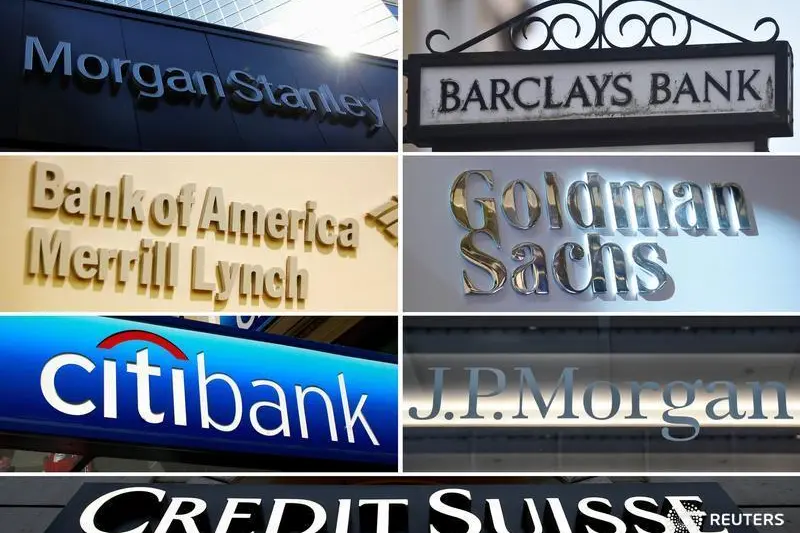PHOTO
NEW YORK (Reuters Breakingviews) - The big American banks get ever bigger, more profitable and more cozy. JPMorgan set the tone on Friday with a record $8.3 billion of earnings for the three months ending June 30. Return on equity at Jamie Dimon’s $363 billion colossus was a roomy 14 percent. Citigroup followed with $4.5 billion of earnings for the quarter, comfortably above consensus forecasts. Yet the largest lenders' price-to-earnings multiples have fallen this year even as forecasts of their earnings power have risen.
Consider what might have been. When generous U.S. tax cuts started to take shape in December last year, analysts began to juice up their estimates. Since then they have added around $4.5 billion each to JPMorgan and Bank of America’s 2019 earnings, $1.4 billion for Citigroup and $1.1 billion for Wells Fargo, Eikon data show. Put those extra goodies on a multiple of 13 times, deduct one-off hits the tax cuts also brought, and the combined market value of the four banks should have risen by $140 billion. Instead, it's up by one-fifth of that at some $28 billion.
If anything the tax cuts promise to be even better than expected. Animal spirits have nudged companies into action, which ought to benefit JPMorgan as the world’s biggest earner of investment-banking fees. Its equity underwriting revenue was already up 49 percent in the second quarter, complementing a strong 16 percent increase in trading income. The effect of extra household income on consumer confidence should also start to show for banks with big credit-card divisions.
But not everything has changed for investors’ benefit. Regulatory relief has been disappointing, despite the Republican party controlling Congress and the White House. Adjustments to post-crisis rules have so far only favored smaller lenders. Trade wars, meanwhile, are bad news for the earnings of big banks that service globe-spanning clients.
And while Uncle Sam might be taking a smaller share of earnings, other pressures are mounting. The gap between short-term and long-term rates has been steadily falling, just as competition for savings threatens to force banks to pay customers more on their deposits. At some point low delinquency rates on consumer debt are sure to rise, even if for now, at JPMorgan at least, the opposite is happening. The four lenders trade at an average 11 times next year’s earnings – whereas the S&P 500 trades at 17 times. That’s less than they’d like, but they don't yet merit more.
CONTEXT NEWS
- JPMorgan on July 13 reported second-quarter earnings of $8.3 billion. At $2.29 per share for the three months ending June 30, results beat the consensus estimate of sell-side analysts of $2.22.
- The U.S. bank reported return on tangible common equity of 17 percent. In February it raised its target for the medium term to that level, from 15 percent before, in response to a cut to the U.S. tax rate passed at the end of 2017.
- Return on common equity was 14 percent, compared with 12 percent a year earlier.
- Citigroup’s earnings for the quarter were $4.5 billion, compared with consensus estimates of $4 billion. Wells Fargo slightly missed estimates with $5.2 billion of earnings, which included a one-off $481 million tax charge.
(Editing by Antony Currie and Martin Langfield)
© Reuters News 2018





















